
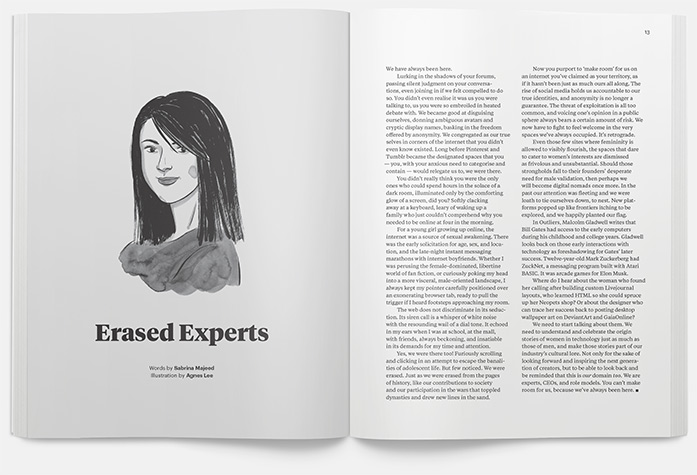
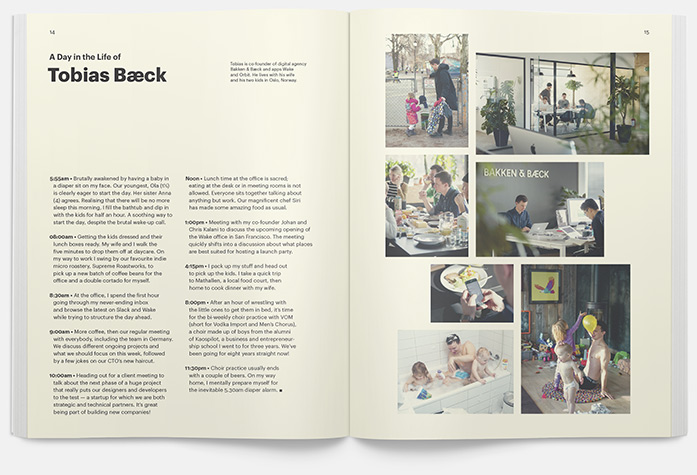
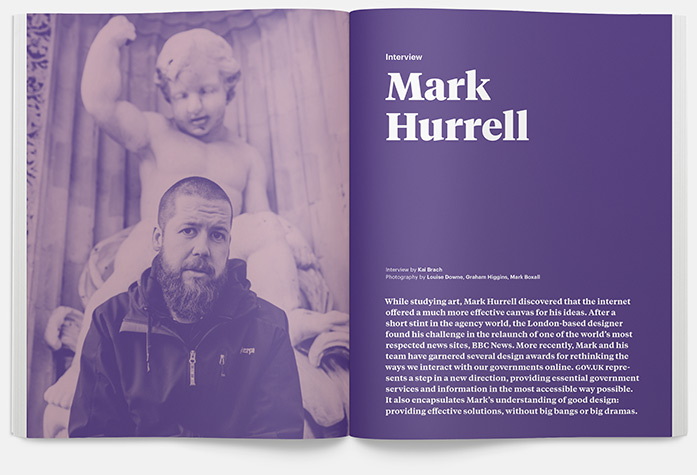
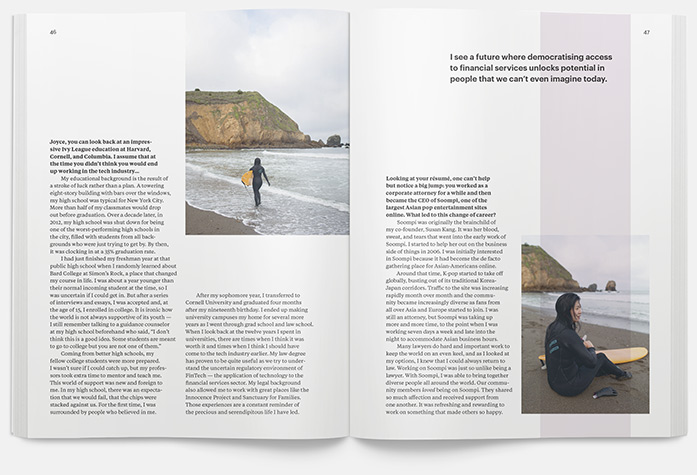
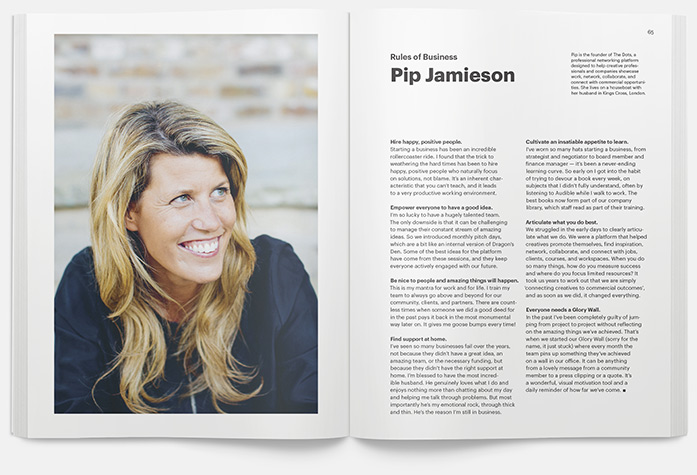
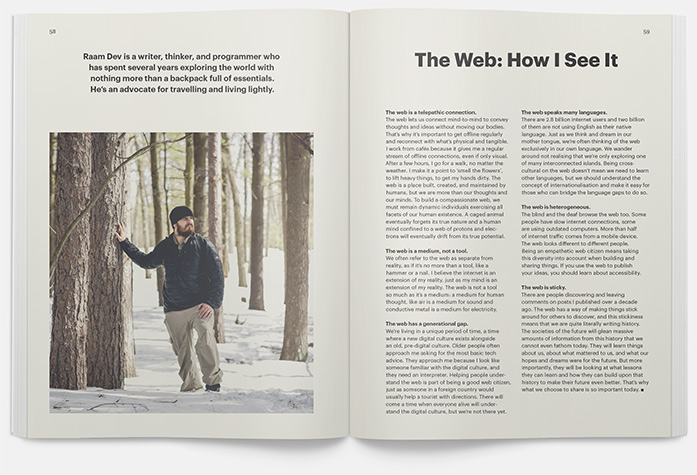
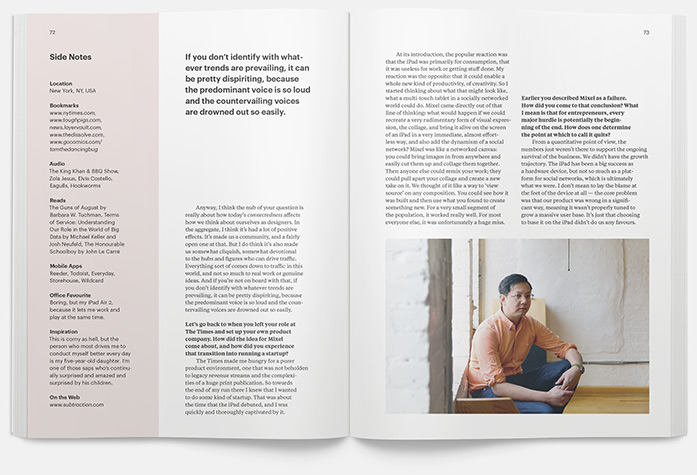
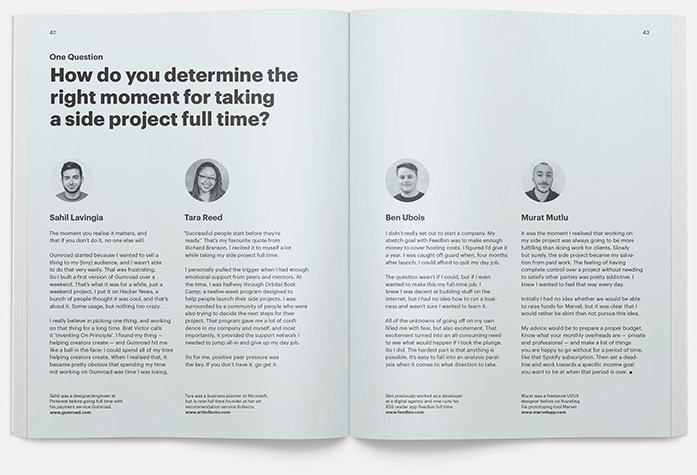
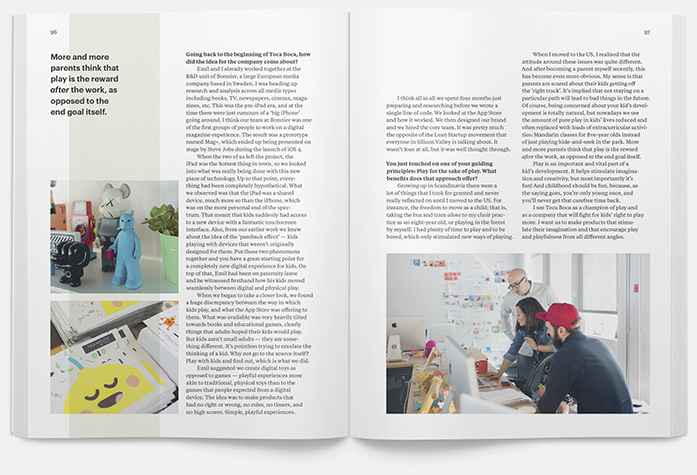
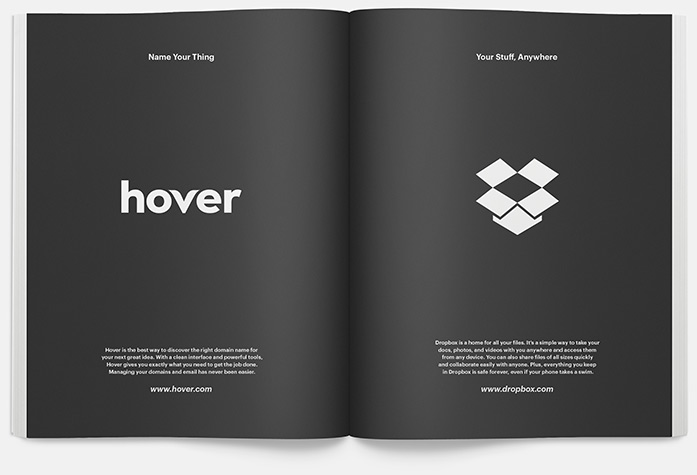
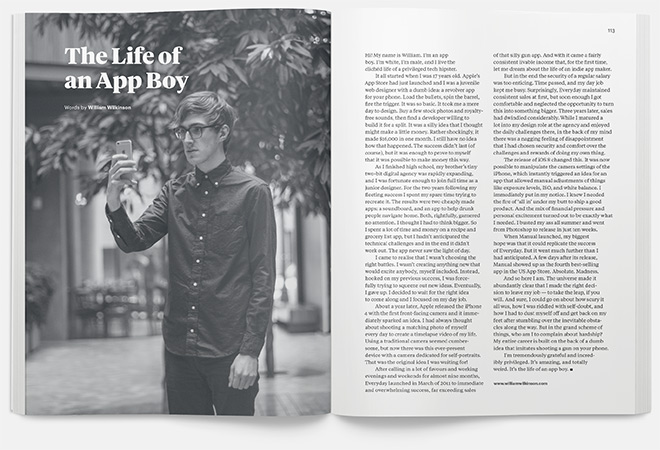
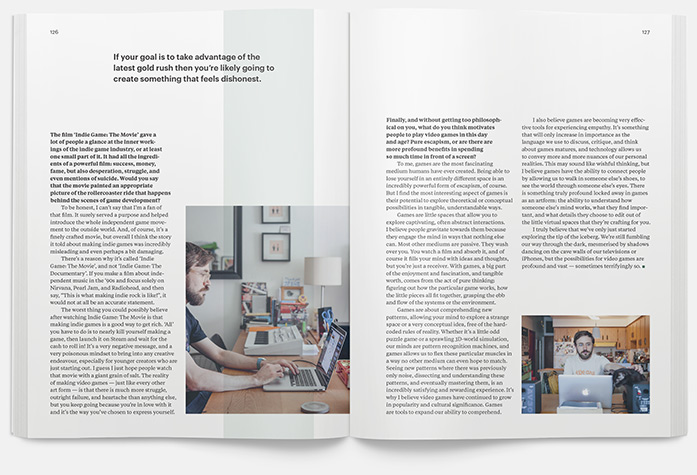
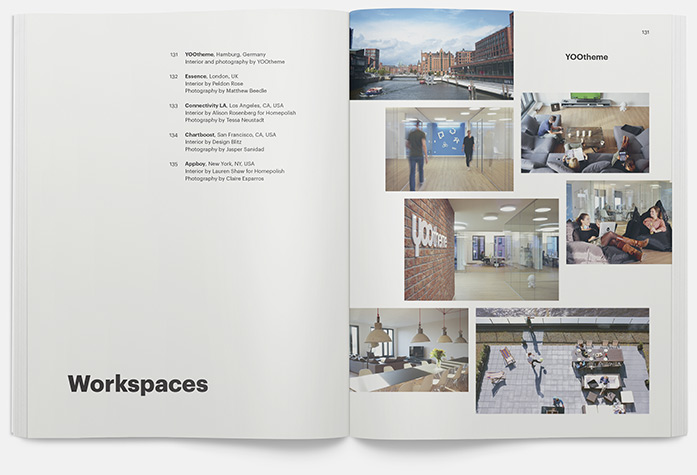
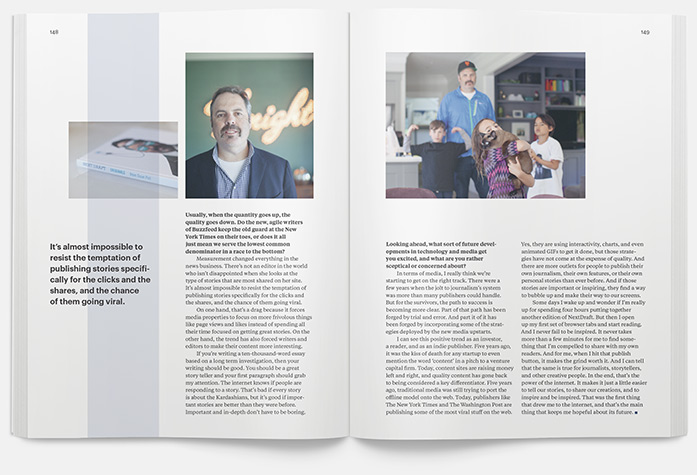
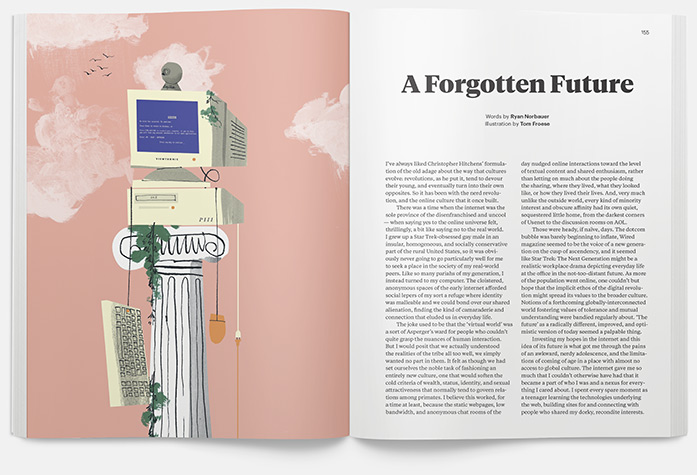
In Issue No11, UK government employee Mark Hurrell talks about designing functional websites without big bangs or big dramas; Joyce Kim connects the dots between human rights and digital currencies; Khoi Vinh gives us a frank assessment of his ever-changing career as designer, blogger, and entrepreneur; app maker Björn Jeffery makes his case for a new generation of digital toys on screens; Torontonian Kris Piotrowski reminisces about video games and the emotional ups and downs of making them; and Dave Pell shows us how to combine investing and sending emails to make a living.
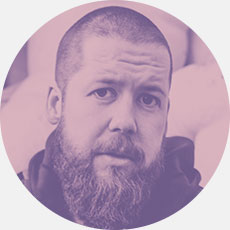
Designer at the UK government — on functional minimalism, what critical art practice taught him about the design process, and how geek culture ruins everything.

Director at Stellar — on what she learned in the Ivy League, using technology to avoid dystopia, and bringing financial literacy to the unbanked.

Designer, blogger, entrepreneur — on the legacy of having worked for The New York Times, futuristic creation devices, and the realities of growing older on the web.

Co-Founder of Toca Boca — on play for the sake of play, adapting to US business culture, and the challenges of selling kids’ apps to adults.
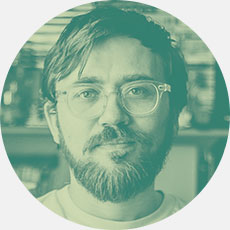
Co-Founder of Capybara Games — on being stuck in The Swamp, how music informs his design process, and what video games can teach us about empathy.

Writer, Blogger, Investor — on the newsworthiness of news, living a dual life as a writer and investor, and why email was and always will be the killer app.
Thoughts — Food for thought by Mills Baker and Sabrina Majeed
A Day In The Life Of — Spend a day with Tobias Bæck and Kim Wouters.
May I Ask — Dan Grover answers questions about his life as an app designer in China.
Inbox Pro — Peter Cooper is a writer, programmer, and publisher. He makes a living sending emails.
Toying with the Future — Roboticist Ian Bernstein tells the story of his company, building mobile-controlled robot toys for kids.
One Question — We asked Sahil Lavingia, Tara Reed, Ben Ubois and Murat Mutlu how to determine the best time to take a side project full time.
The Web: How I See It — Raam Dev is a writer, thinker, and programmer. He shares with us his view of the state of the web.
Printing Better Health Care — Samiya Parvez, co-founder of Andiamo, shows us how to turn the darkest moments of our lives into a force for good.
Rules of Business — Guiding principles for doing business, by Pip Jamieson.
Gear Guide — Accessories for the modern web worker, by Shawn Blanc
Ghost Stories — John O’Nolan tells us about the making of non-profit blogging platform Ghost.
The Life of an App Boy — William Wilkinson successfully sells apps on the App Store, and finds it all pretty weird and wonderful.
Workspace — YOOtheme, Essence, Connectivity LA , Chartboost, Appboy
Agency Truths — Tim Malbon shares insights and guiding principles of his agency Made by Many.
A Forgotten Future — Ryan Norbauer reminisces about the 'old web' and what we lost.
Go to our new website and start a subscription today!